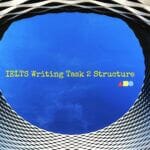Introduction
The International English Language Testing System (IELTS) is a widely recognized English proficiency test that assesses the language skills of non-native English speakers. One of the key components of the test is Writing Task 2, which focuses on evaluating a candidate’s ability to write a clear, coherent, and well-structured academic essay. In this section, candidates are often required to express their opinions on various topics, making it essential to effectively articulate their thoughts and arguments.
The purpose of this blog post is to provide guidance and tips for expressing opinions in academic essays for IELTS Writing Task 2. This will not only help you to improve your writing skills but also increase your chances of achieving a higher band score. By following the strategies and recommendations outlined here, you will learn how to present your opinions in a clear, logical, and persuasive manner while maintaining the appropriate academic tone and style. Let’s embark on this journey to master the art of expressing opinions in IELTS Writing Task 2.
Understanding the IELTS Writing Task 2 Question Types
In order to express your opinions effectively in IELTS Writing Task 2, it is crucial to first understand the different question types that may be presented. Familiarizing yourself with these question types will enable you to identify the best approach for answering each question and help you to structure your essay accordingly. Here are the four main question types you may encounter:
A. Opinion Essay
In this type of question, you will be asked to provide your opinion on a given topic. You should clearly state your viewpoint and provide reasons and examples to support your opinion. It is important to be objective and maintain an academic tone while presenting your thoughts.
Example: “To what extent do you agree or disagree with the following statement: Technology has made the world a better place.”
B. Discussion Essay
In a discussion essay, you will be asked to discuss both sides of an issue, often including your own opinion. Your task is to present a balanced argument by considering various perspectives and supporting each viewpoint with evidence and examples.
Example: “Discuss the advantages and disadvantages of living in a cashless society. What is your own opinion on this matter?”
C. Problem-Solution Essay
For this question type, you will be presented with a problem or issue and asked to suggest one or more solutions. You should describe the problem, explain why it is an issue, and then propose possible solutions with supporting examples and evidence.
Example: “Overpopulation in cities is causing various issues. What measures can be taken to deal with this problem?”
D. Two-Part Question Essay
In a two-part question essay, you will be given two related questions that you need to address in your response. This type of essay requires you to provide a clear and logical answer to both questions while maintaining coherence and cohesion throughout your writing.
Example: “Why do you think some people are attracted to dangerous sports? What can be done to reduce the risks associated with these sports?”
By understanding these question types and choosing the appropriate approach for each one, you can ensure that you express your opinions effectively and coherently in your IELTS Writing Task 2 essay.
Choosing the Right Approach Based on the Task 2 Question Types
Selecting the appropriate approach for each IELTS Writing Task 2 question type is crucial for effectively expressing your opinions and structuring your essay. Here are some guidelines for tailoring your approach to the specific question type:
A. Opinion Essay
When dealing with an opinion essay, make sure to state your viewpoint clearly in the introduction. In the body paragraphs, provide reasons and examples to support your opinion. You may also consider mentioning counterarguments or alternative viewpoints, but ensure that you convincingly refute them to strengthen your position. Finally, restate your opinion in the conclusion and summarize your main points.
Example:
Question: “Do you agree or disagree that governments should prioritize funding for public transportation over the construction of new highways?”
Introduction: “While some argue that constructing new highways is essential for a country’s development, I firmly believe that governments should prioritize funding for public transportation due to its numerous benefits.”
Body paragraph 1: “Investing in public transportation, such as buses and trains, can significantly reduce traffic congestion in urban areas…”
Body paragraph 2: “Moreover, prioritizing public transportation promotes environmental sustainability by encouraging citizens to use eco-friendly travel options…”
Conclusion: “In conclusion, governments should focus on funding public transportation over building new highways, as it offers considerable advantages in terms of reducing traffic congestion and promoting environmental sustainability.”
B. Discussion Essay
For a discussion essay, begin by introducing the topic and presenting both sides of the issue. In the body paragraphs, dedicate equal attention to the advantages and disadvantages or various perspectives, providing evidence and examples for each. If the question asks for your opinion, clearly state your position after discussing both sides. Conclude by summarizing the main points and restating your opinion if applicable.
Example:
Question: “Discuss the advantages and disadvantages of working from home.”
Introduction: “With the rise of remote work, the advantages and disadvantages of working from home have become a topic of much debate.”
Body paragraph 1 (Advantages): “One significant advantage of working from home is the flexibility it offers employees in terms of managing their work-life balance…”
Body paragraph 2 (Disadvantages): “However, working from home also presents certain challenges, such as potential distractions and the lack of direct interaction with colleagues…”
Conclusion: “In conclusion, working from home has both advantages and disadvantages, and its suitability largely depends on individual preferences and job requirements.”
C. Problem-Solution Essay
When addressing a problem-solution essay, start by introducing the problem and explaining its significance. In the body paragraphs, propose one or more solutions, detailing the advantages and potential outcomes of each. Support your solutions with examples and evidence. In the conclusion, summarize the problem and your proposed solutions, emphasizing the importance of taking action.
Example:
Question: “Water scarcity is becoming a significant issue in many regions. What are some potential solutions to address this problem?”
Introduction: “Water scarcity, increasingly affecting numerous regions around the world, poses serious challenges to people’s livelihoods and the environment.”
Body paragraph 1 (Problem): “One major factor contributing to water scarcity is the inefficient use of water resources in agriculture, industry, and households…”
Body paragraph 2 (Solution): “To mitigate this issue, governments and communities could implement water conservation measures, invest in innovative technologies for water recycling, and promote sustainable water management practices…”
Conclusion: “In conclusion, addressing water scarcity necessitates a combination of efficient water usage, technological advancements, and sustainable management practices to ensure the long-term availability of this vital resource.”
D. Two-Part Question Essay
For a two-part question essay, begin by introducing the topic and acknowledging both questions. In the body paragraphs, address each question separately, ensuring that your arguments are clear, logical, and supported by evidence and examples. Maintain coherence by using cohesive devices and transitions. In the conclusion, summarize your main points and provide a final thought on the topic.
By carefully considering the question type and following these guidelines, you can choose the right approach for expressing your opinions and structuring your essay, ultimately leading to a more coherent and persuasive response in IELTS Writing Task 2.
Example:
Question: “What are the primary reasons for the growing popularity of online shopping, and how is it affecting brick-and-mortar stores?”
Introduction: “The growing popularity of online shopping has significantly impacted consumer behavior and the retail landscape. Understanding the driving factors and implications for traditional brick-and-mortar stores is essential for adapting to this new reality.”
Body paragraph 1 (Reasons): “The main reasons for the surge in online shopping include convenience, wider product selection, and competitive pricing offered by e-commerce platforms…”
Body paragraph 2 (Effects on brick-and-mortar stores): “As a result, brick-and-mortar stores are facing challenges such as reduced foot traffic and increased competition. To survive, many physical retailers are adopting omni-channel strategies, focusing on in-store experiences, and leveraging technology to enhance customer engagement…”
Conclusion: “In conclusion, the rise of online shopping has been driven by factors such as convenience and variety, leading to significant challenges for traditional brick-and-mortar stores. To remain competitive, these retailers must adapt and innovate in response to changing consumer preferences and market dynamics.”
Strategies for Expressing Opinions in Writing Task 2 Essays
Effectively conveying your opinions in IELTS Writing Task 2 requires careful consideration of language, tone, and evidence. Here are five strategies to help you express your opinions in a clear, persuasive, and academically appropriate manner:
A. Using Clear and Concise Language
When expressing your opinions, aim to use clear and concise language that accurately conveys your point of view. Avoid lengthy or complex sentences that may confuse the reader. Instead, choose simple and direct phrasing to ensure that your ideas are easily understood.
Example:
Unclear: “In my estimation, the substantial proliferation of technology in the modern age has had a myriad of profound ramifications on the way human beings interact with each other in various settings.”
Clear: “In my view, the widespread use of technology in today’s world has significantly changed how people interact with one another in different situations.”
B. Balancing Personal Opinions with Evidence and Examples
While stating your opinions is important, supporting them with evidence and examples adds credibility to your arguments. Make sure to provide relevant facts, statistics, or anecdotes that back up your opinions. This not only strengthens your position but also demonstrates your ability to critically analyze and synthesize information.
Example:
Opinion without evidence: “I believe that remote work is more productive for most employees.”
Opinion with evidence: “I believe that remote work is more productive for most employees, as studies have shown that working from home can lead to a 13% increase in productivity.
C. Being Objective and Avoiding Emotional Language
In academic essays, maintaining an objective tone is crucial. Avoid using emotional or subjective language when expressing your opinions. Instead, focus on presenting logical arguments and evidence-based reasoning. This will help you to appear more credible and persuasive while also adhering to the academic style required for IELTS Writing Task 2.
Example:
Emotional language: “The government’s lack of action on climate change is absolutely outrageous and a clear sign of incompetence.”
Objective language: “The government’s limited action on climate change raises concerns about its ability to address this critical issue effectively.”
D. Employing Appropriate Hedging Techniques
Hedging is the practice of using cautious language to express opinions or make claims that are not absolute. This is important in academic writing, as it demonstrates your awareness of the complexity of the topic and the limitations of your knowledge. Use modal verbs (e.g., might, could, may), adverbs (e.g., possibly, probably), or cautious phrases (e.g., it seems, it is likely) to convey a sense of uncertainty or tentativeness when appropriate.
Example:
Overconfident statement: “Switching to renewable energy sources will solve all of our environmental problems.”
Hedged statement: “Switching to renewable energy sources could potentially alleviate some of our environmental concerns, although additional measures may still be necessary.”
E. Using Varied Vocabulary to Express Opinions
A diverse vocabulary not only demonstrates your language proficiency but also enables you to express your opinions more effectively. Avoid repeating the same words or phrases throughout your essay. Instead, use synonyms or alternative expressions to convey your ideas in a more engaging and nuanced manner. For example, instead of repeatedly using “I think,” consider alternatives like “I believe,” “I contend,” or “In my view.”
Example:
Repetitive: “I think that space exploration is essential for humanity. I think it can lead to new scientific discoveries, and I think it can inspire the next generation of scientists and engineers.”
Varied vocabulary: “I believe that space exploration is essential for humanity, as it can lead to new scientific discoveries and inspire the next generation of scientists and engineers.”
By implementing these strategies, you can express your opinions more effectively and persuasively in your IELTS Writing Task 2 essay, ultimately leading to a higher band score.
Structuring Your Essay
A well-structured essay is essential for achieving a high band score in IELTS Writing Task 2. A clear organization allows you to effectively communicate your ideas and opinions while maintaining coherence and cohesion. Here is a guide on how to structure your essay:
A. Introduction
- Paraphrasing the question: Begin your essay by rephrasing the question in your own words. This demonstrates your understanding of the topic and helps to set the context for your response. Example: Original question – “Do the benefits of studying abroad outweigh the drawbacks?” Paraphrased – “Is the value of pursuing an education in a foreign country greater than the potential disadvantages?”
- Stating your opinion (if applicable): For opinion or discussion essays, include a clear statement of your position on the topic. Example: “In my opinion, the advantages of studying abroad far outweigh the potential drawbacks.”
B. Body paragraphs
- Topic sentences: Start each body paragraph with a topic sentence that introduces the main idea of the paragraph. This helps to guide the reader and maintain coherence in your essay. Example: “One significant benefit of studying abroad is the opportunity to develop language skills.”
- Supporting ideas and examples: Expand on the main idea introduced in the topic sentence by providing evidence, reasons, or examples to support your opinion. Example: “By immersing oneself in a foreign culture, students can practice and improve their language skills through everyday interactions with native speakers.”
- Using cohesive devices to link ideas: Employ cohesive devices, such as transitions, conjunctions, and referencing, to connect ideas within and between paragraphs. This helps to maintain the flow and coherence of your essay. Example: “Moreover, studying abroad exposes students to diverse perspectives, fostering cultural awareness and personal growth.”
C. Conclusion
- Summarizing your main points: In the conclusion, briefly recap the main points you discussed in the body paragraphs. This helps to reinforce your arguments and remind the reader of your overall position. Example: “In conclusion, studying abroad offers numerous benefits, including improved language skills and increased cultural awareness.”
- Restating your opinion (if applicable): If your essay requires you to state your opinion, reiterate your position in the conclusion to reinforce your viewpoint. Example: “Overall, I firmly believe that the advantages of studying abroad far outweigh any potential drawbacks.”
By following this structure, you can ensure that your essay is well-organized, coherent, and persuasive, ultimately leading to a higher band score in IELTS Writing Task 2.
Tips for Effective Paraphrasing and Hedging
Paraphrasing and hedging are essential skills for expressing opinions and presenting information in academic essays, particularly in IELTS Writing Task 2. Here are some tips and techniques for effective paraphrasing and hedging:
A. Using Synonyms and Rephrasing
- Replace keywords with synonyms or phrases that convey a similar meaning. Example: Original – “Children should spend more time playing outdoors.” Paraphrased – “Youngsters ought to devote additional time to engaging in outdoor activities.”
- Change the sentence structure or word order without altering the core meaning. Example: Original – “Modern technology has significantly impacted communication.” Paraphrased – “Communication has been profoundly influenced by modern technology.”
B. Modal Verbs and Adverbs for Hedging
- Use modal verbs (e.g., might, could, may) to express uncertainty or possibility. Example: “Switching to renewable energy sources might help reduce greenhouse gas emissions.”
- Incorporate adverbs (e.g., possibly, probably, perhaps) to convey varying degrees of certainty. Example: “Reducing screen time could potentially improve children’s sleep quality.”
C. Reporting Verbs to Convey Others’ Opinions:
- Utilize reporting verbs (e.g., claim, argue, suggest) to attribute opinions or findings to others, demonstrating your awareness of diverse perspectives. Example: “Researchers argue that social media usage can contribute to feelings of loneliness and isolation.”
- Vary your reporting verbs to showcase your language proficiency and maintain reader engagement. Example: “Some experts contend that online learning is equally effective as traditional classroom instruction, while others maintain that face-to-face interaction is crucial for optimal learning outcomes.”
D. Examples of Strong and Weak Hedging:
- Strong hedging conveys an appropriate level of uncertainty without undermining your argument. Example: “It is likely that implementing stricter gun control measures would lead to a decrease in firearm-related violence.”
- Weak hedging appears overly tentative, diminishing the persuasiveness of your argument. Example: “It is kind of possible that introducing more stringent gun control laws may have a little impact on reducing gun-related violence, but it is hard to say for sure.”
By mastering these paraphrasing and hedging techniques, you can enhance the clarity, precision, and persuasiveness of your IELTS Writing Task 2 essay, ultimately improving your band score.
Common Mistakes to Avoid When Expressing Opinions
When expressing opinions in IELTS Writing Task 2, it is essential to avoid certain common mistakes that can undermine the effectiveness of your essay. Here are five common pitfalls to watch out for:
A. Overgeneralizing
Avoid making broad, sweeping statements that lack nuance or are not supported by evidence. Instead, focus on specific, evidence-based claims that reflect the complexity of the topic.
Example: Instead of “Everyone knows that exercise is good for health,” write “Numerous studies have demonstrated the positive impact of regular exercise on physical and mental health.”
B. Being Too Personal or Informal
Maintain an academic tone and avoid using informal language, slang, or overly personal anecdotes. Stick to objective, evidence-based arguments that are relevant to the topic.
Example: Instead of “I hate when people talk on their phones in public places,” write “The use of mobile phones in public spaces can be disruptive and negatively affect the experience of others.”
C. Failing to Provide Sufficient Evidence
Ensure that your opinions are supported by appropriate evidence, such as research findings, statistics, or relevant examples. Unsupported claims can weaken your argument and reduce your credibility.
Example: Instead of “Online learning is not effective,” write “Some studies have suggested that online learning may be less effective than traditional classroom instruction due to factors such as limited interaction and technical difficulties.”
D. Excessive Repetition of the Same Opinion
Avoid repeating the same opinion or argument throughout your essay. Instead, present a variety of well-supported points that contribute to a cohesive and persuasive argument.
Example: Instead of reiterating “Traditional teaching methods are better” multiple times, provide various reasons and evidence that demonstrate the advantages of traditional teaching methods over alternative approaches.
Example:
Original essay excerpt – “Traditional teaching methods are better because students can interact face-to-face. Traditional teaching methods are superior because they allow for immediate feedback. Traditional teaching methods are more effective because they encourage group work and collaboration.”
Improved essay excerpt – “Traditional teaching methods provide several advantages over alternative approaches. Firstly, they facilitate face-to-face interaction, fostering better communication between students and teachers. Secondly, they enable immediate feedback, allowing learners to address misconceptions and improve more rapidly. Lastly, they encourage group work and collaboration, which can enhance critical thinking and problem-solving skills.”
E. Ignoring Counterarguments or Opposing Viewpoints
Addressing counterarguments or alternative perspectives can strengthen your essay by demonstrating your awareness of the complexity of the issue. Acknowledge opposing viewpoints and provide evidence or reasoning to refute them.
Example
Original essay excerpt – “Many people believe that a vegetarian diet is healthier than a diet that includes meat. Vegetarian diets are rich in vitamins, minerals, and fiber while being low in saturated fat and cholesterol.”
Improved essay excerpt – “Many people believe that a vegetarian diet is healthier than a diet that includes meat, as it is rich in vitamins, minerals, and fiber while being low in saturated fat and cholesterol. However, critics argue that a balanced diet that includes lean meats, fish, and poultry can provide essential nutrients, such as iron and vitamin B12, which are more difficult to obtain from plant-based sources. By incorporating a variety of whole foods and ensuring adequate nutrient intake, both vegetarian and omnivorous diets can promote optimal health.”
By avoiding these common mistakes, you can ensure that your opinions are expressed effectively and persuasively in your IELTS Writing Task 2 essay, ultimately contributing to a higher band score.
Practice and Feedback
To excel in expressing opinions in IELTS Writing Task 2, consistent practice and constructive feedback are crucial. This section highlights the importance of practice, self-assessment, and feedback in improving your writing skills.
A. Importance of Practice and Self-Assessment
- Regular practice: Engaging in consistent writing practice helps to develop your skills in expressing opinions, organizing your essay, and using appropriate language. Set aside time for regular practice sessions and focus on various aspects of your writing.
- Self-assessment: After completing a practice essay, evaluate your work by comparing it to the IELTS Writing Task 2 assessment criteria. Identify areas of strength and weakness, and work on improving your weaker areas in subsequent practice sessions.
B. Seeking Feedback from Peers or Instructors
- Peer feedback: Share your essays with classmates or friends who are also preparing for IELTS. They can provide valuable insights and suggestions for improvement, while you can do the same for their work.
- Professional feedback: If possible, seek feedback from instructors or tutors who are familiar with the IELTS Writing Task 2 requirements. They can offer expert advice on improving your essay structure, coherence, and language use.
C. Utilizing Online Resources and Sample Essays
- Online resources: Explore websites, forums, and social media groups dedicated to IELTS preparation. These platforms often provide tips, strategies, and sample essays that can aid in your practice and self-assessment.
- Sample essays: Analyze high-scoring IELTS Writing Task 2 essays to understand what makes them effective. Pay attention to how opinions are expressed, how evidence is presented, and how the essay is structured. Apply these insights to your own writing to enhance your skills.
By engaging in regular practice, self-assessment, and seeking feedback, you can refine your ability to express opinions in your IELTS Writing Task 2 essays, ultimately leading to a higher band score.
Conclusion
In conclusion, expressing opinions effectively in IELTS Writing Task 2 is crucial for achieving a high band score. To develop this skill, it is essential to understand the various question types, employ appropriate strategies for conveying opinions, and structure your essay coherently. Additionally, mastering paraphrasing and hedging techniques, avoiding common mistakes, and engaging in regular practice and feedback will further enhance your writing abilities.
By implementing the tips and techniques outlined in this blog post, you can improve your ability to express opinions persuasively and coherently in your IELTS Writing Task 2 essays, ultimately leading to a higher band score and greater success in your academic endeavors.





0 Comments